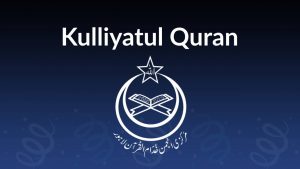 Kulliyatul Quran(Prospectus) Information Booklet
Kulliyatul Quran(Prospectus) Information Booklet
- Introduction
- Aims and objectives
- Rules and Regulations
- Syllabus
- Examinations system
- Student sponsorship and scholarships
- Residency
- Education system
- Teaching hours
- Educational Council
- Discipline
- Features Institution
Aims and Objectives
The main purpose of the “Kulliyatul Quran Course” is to prepare such men and preachers of Islam who are adorned with the ornaments of piety, divinity, and sincerity along with the perfection of knowledge. Guide them also into the good behaviors and to avoid displaying some profane ones.
- To cooperate with other madrassas in the field of knowledge, teaching, and experimentation by establishing links with them.
- To bring the new generation closer to the religion of Islam and to establish their connection with religious values and Islamic etiquette, civilization, and culture.
- To guide and enlighten the general Muslims and to guide them to the enlightened principles of the egg nation by protecting them from various atheistic thoughts and ideas.
- To translate important and useful books of Arabic into Urdu and to arrange for the printing of important and useful books of Urdu by translating them into Arabic.
Rules and Regulations
(1) Every student needs to adhere to the teachings of Ahl-e-Sunnah Wal-Jamaat.
(2) Every student must observe congregational prayers except for the Shariah excuse.
(3) Every student needs to have the utmost respect and commitment from all teachers.
(4) Every student is required to follow the advice of the Ummah in terms of morals and deeds, appearance, and character.
(5) Each student will have to approach the administration and teachers for redressal of their grievances. Taking the law into one’s own hands will never be allowed.
(6) Failure to read and repeat will be punished in case of non-refusal even after a verbal warning.
(7) Since the institution caters to all the needs of the students, no source of income should be sought outside the institution. Otherwise, the said student will not be entitled to the assistance of the institution and the residence.
(8) Students residing in the dormitory will need the permission of the dormitory to leave the institution at times other than the time between Asr and Maghrib. Attendance at the institution is mandatory at all times other than the above-mentioned time. Absence will be punished.
(9) No guest will be allowed to stay in the residence without the permission of the Nazim of the residence. Visitors should be told to come for an appointment between Asr and Maghrib or on a weekly holiday.
(10) Every student has to take special care of cleanliness. You will be responsible for cleaning your room and keeping your belongings neat and tidy.
(11) It is necessary to abide by the instructions and rules of the head of the institution, teachers, and administration and to abide by the rules and regulations of the institution.
(12) Students who waste their time in an entertaining, meeting friends and unnecessary hospitality will be expelled from the institution if they do not return after the warning.
(13) Absence from lessons is a crime. In such a dire need that cannot be fulfilled without learning the lesson, it is necessary to apply for leave to the office of the institution itself. The application will be accepted due to the impossibility of attending lessons or due to abuse. The application of the students residing in the dormitory must be signed by the moderator and the application of the external students must be signed by their guardian and then the supervising teacher of the class.
(14) Failure to comply with the above rules and regulations will result in severe disciplinary action which may result in expulsion from the residence and institution.
(15) Students who drop out during the session will have to pay all the expenses of the previous period (such as accommodation, food, and tuition). Whether he pays it himself or his guardian.
Curriculum for First-class (Federation of Arab Schools)
- Tajweed
- Jurisprudence
- Islamic History / Additional subject
- Only training, only Mir, only balance
- Arabic Readers
- Syntax and Explanation
Curriculum for Second class (Federation of Arab Schools)
- Tafsir Quran
- Jurisprudence
- Hadith
- Tajweed
- Arabic literature
- Syntax of grammar and facilitation of literature
- Only the knowledge of the word and the characteristics of the chapters from the Akbari seasons
- The logic of the third logic, such as Ghoji and Murat.
Examinations System
Three examinations will be conducted during the year in all the academic departments of the institution, the details of which are given below :
(1) Quarterly exams in the first week of Safar Al-Muzaffar.
(2) Half yearly examination in the first week of Jamadi-ul-Awli.
(3) Annual examination in the first week of Sha’ban.
The schedule will be announced before the three examinations are held.
* The duration of the written test will be ten days.
Examination Method
* Normally all the exams will be written but some first and second-class subjects will be examined orally. In written exams, the duration of each paper is usually three hours. Fifteen minutes before the start of the paper, the bell will be rung and the students will enter the examination hall and start sitting in the order of their roll numbers. Fifteen minutes later the bell will ring again and the students will start solving the question paper under the supervision of the teacher by distributing the question paper.
* The student can submit the paper one hour after the commencement of the examination. Even if one has solved the paper before that, he cannot leave the examination hall.
* The annual examination for the grades which are conducted under the Federation of Arab Schools and Lahore Board will be by the system and arrangement of the Federation and Lahore Board.
Method of Questions
* The question papers of the quarterly and six-month examinations will be prepared by the concerned teachers while the question papers of the annual examinations will be prepared by other teachers.
* Normally there will be three questions in the book and the article and all three will be mandatory. Each question will have different components and each component will have a separate number.
* Examiners will be obliged to check the examination papers in their spare time and return the papers on the third day after the examination papers are completed during the examinations. Additional leave of two to three days will be given at the end of the examination.
* After compiling the results, the examination committee will review the papers of students with unbalanced marks, distinction marks, and failing marks. After announcing the results in the student assembly, prizes will be given to the first, second, and third-place students and prizes will be given to the students who get 90% or more marks.
Success Rates
It is necessary to get 40% marks out of 100 marks in each subject, while the standard of grades of successful students will be as follows.:
Prominent 90%
Excellent 60%
Glorious 50%
Popular 40%
A student who scores less than this will be considered a failure.
Student Sponsorship and Scholarships
Education will be free at the institution. Students will not be charged for tuition, residency, or any other type of fee, while textbooks will be sent to students. Eligible students will also be provided with scholarships, food, treatment, and other necessities.
Residency
Along with the education of students in the institution, special attention will also be given to religious and moral training for which the students must spend 24 hours in the environment of the institution. For this purpose, a dormitory has been set up in which necessary facilities for accommodation of students including water, electricity, gas stoves, geysers, and cold water coolers, kitchens and restaurants will be provided. Also, various training programs will be set up to highlight students’ hidden talents.
The Art of Oratory
Arrangements will be made for students studying Dars Nizami to sit in different classrooms during non-teaching hours on Thursday evenings and practice the art of oratory so that they may acquaint the public with religious teachings through oratory in the next practical field. There will be a regular system for this and a supervisor will be appointed for each class.
At the end of the year, there will be a speech competition under the supervision of teachers at the level of each class in which special prizes will also be given to the first, second, and third-place students.
Education System
An essential rule for admission is to admit such students in the institution who have a religious temperament and the required academic ability, so the entrance test is a prerequisite for admission.
The academic year of the institute will start in the first decade of Shawwal. On 6th or 7th Shawwal, the date, details, and procedure of new admissions will be announced.
Students wishing to be admitted at any level will be required to submit the data of the previous level, especially the certificates of any federation of madrassas and the discovery of attendance.
Special attention will be given to the training of students in the institution so it will be necessary for every student to abide by the following rules and regulations.:
* It is essential that the student be a true Muslim. Follow the Sunnah and the way of thinking and acting of the forefathers should be his style.
* Students must be at least thirteen years old to be admitted to the books.
* For admission, middle pass students will be included in the entrance examination for the first class based on the certificate obtained from the school.
* The student will be responsible for the transportation expenses. However, after admission, the deserving students will be provided education, books, treatment, food, and accommodation inside the institution free of cost.
* Students wishing to enter the required level will be given a short written and then a speech test. And the student who succeeds in both exams will be admitted to the office.
Teaching Hours
Grade books will be taught at 9 in the morning and afternoon. In between, there will be a break for food, rest, and prayers. Also, from the evening till 10:30 pm, teacher supervision and study will be arranged.
Educational Duration and Holidays
The duration of education in the institute will be about ten months which will be from mid-Shawwal to early Sha’ban. The annual leave will be for two months. On the occasion of Eid-ul-Adha, there will be a ten-day holiday and a weekly holiday on Friday.
Discipline
All disciplinary matters will be carried out in consultation with all the teachers.
Educational Council
The following are the names of the members of this educational council:
(1) Guardian: Respected Mr. Hafiz Akif Saeed
(2) Chief Nazim: Respected Hafiz Atif Waheed Sahib
(3) Hafiz Nazir Ahmad Hashmi
(4) Qari Yahya Ashraf Abdul Ghaffar Sahib
(5) Respected Hafiz Muhammad Zubair Sahib
(6) Respected Hafiz Tahir Islam Askari Sahib
(7) Muhammad Fawad Sahib
Features of the Faculty of Quran
(1) Experienced and highly educated teachers and lecturers
(2) Excellent management of education and training
(3) Excellent standard of management and cleanliness
(4) Great opportunities to ignite student’s creativity
(5) Preparation up to Matriculation, FA, BA, and MA in Modern Studies with Islamic Studies
(6) Beautiful buildings and classrooms
(7) Computer lab
(8) Excellent and complete library
(9) Complete adherence to Islamic morality
(10) The best ventilated and bright rooms for accommodation
(11) Excellence in Quranic topics and intellectual and practical guidance
(12) By the principles of food hygiene
(13) Assist in meeting the teaching needs of students
(14) Efficient use of time
(15) Providing various recreational opportunities

